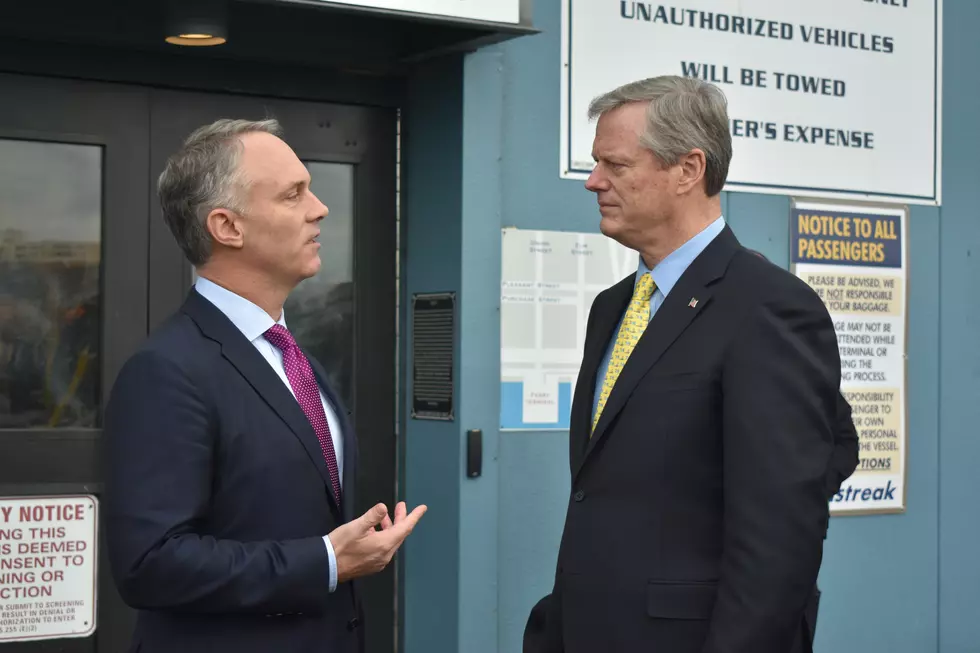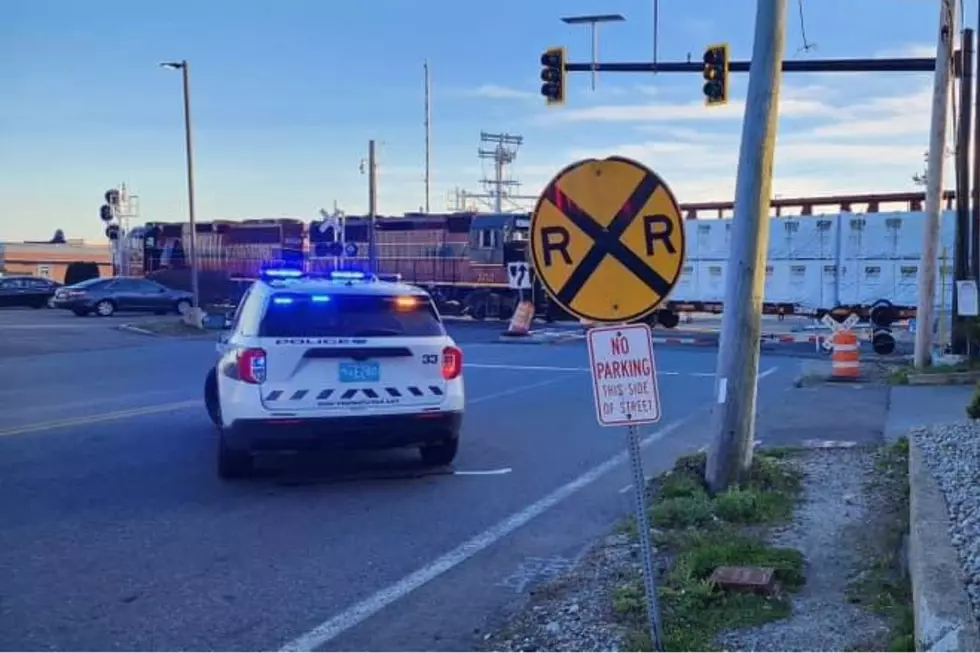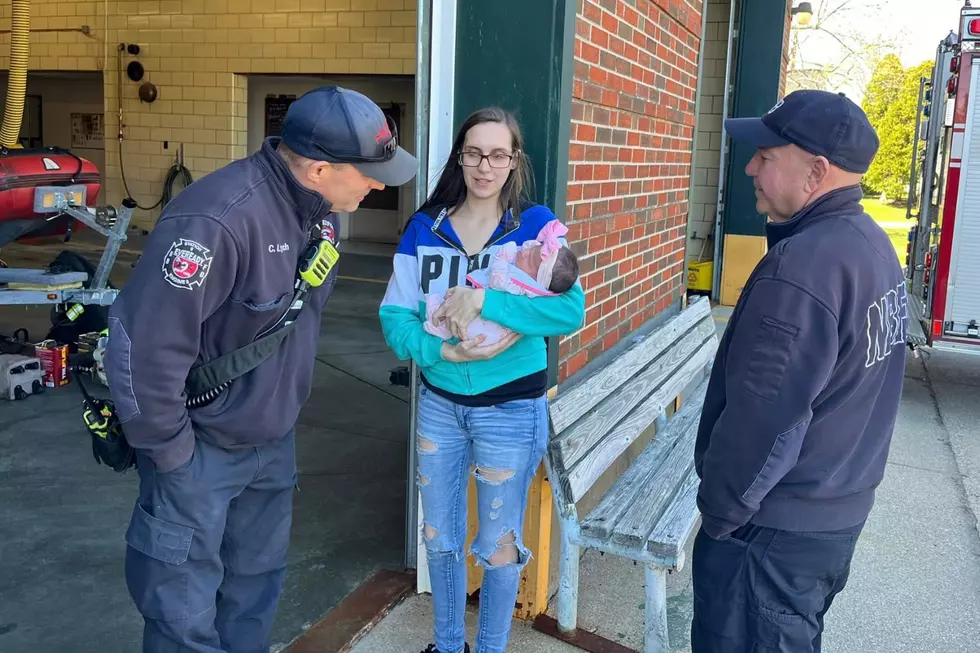
Port of New Bedford to Plan for Climate Change
New Bedford and Fairhaven share a valuable working waterfront, and now thanks to a $58,662 state grant, the two municipalities will join forces to ensure that their port facilities can withstand rising seas and extreme weather events -- two key markers of climate change.
Local officials from across the state gathered at New Bedford's State Pier ferry terminal on Wednesday to welcome Gov. Charlie Baker and his entourage, who traveled from Boston to announce the latest round of Municipal Vulnerability Preparedness grants. Towns and cities from the Berkshires to the Southcoast won grants to either plan for climate change or take action based upon previous planning. In all, $11.6 million was awarded.
New Bedford and Fairhaven will use the funds to hire experts who will take a close look at the physical condition of their piers, including whether they are high enough and configured in such a way as to endure sea level rise. With a plan in place, the table will be set to invest in actual infrastructure.
"This part of the waterfront we're on right now altogether generates about 2 percent of the state's GDP. It's really the economic engine of Southeastern Massachusetts, and we want to make sure it stays that way for the foreseeable future," Mitchell said.
Baker, a Republican, said that climate change is real, and being proactive in the face of changing conditions is better than just taking a "rebuild, rebuild, rebuild" approach after communities are decimated by storms.
"Things have significantly changed," said Baker. "And we need to change, too."
Lt. Gov. Karyn Polito said the state's Municipal Vulnerability Planning Program lets cities and towns evaluate and protect community assets before they are damaged by climate change. She said 82 percent of Massachusetts communities have now engaged in some sort of municipal vulnerability planning.
Energy and Environment Secretary Kathleen Theoharides, who was praised as the architect of the program, said it's the state's intention to "put its money where its mouth is." She said if culverts, dams, and flood-absorbing wetlands are compromised, that economics, public safety, and quality of life are put at risk.
Baker said municipal vulnerability planning is an innovative program with no precedent in the U.S., and that Massachusetts is leading the way.
"There was no playbook for this program. We are writing the playbook," he said.
Baker, Polito, and Theoharides listened as community leaders spoke of super-sizing culverts, rebuilding stormwater systems, hardening their flood control infrastructure, and using land use planning to mitigate floodwaters. Local officials from across Massachusetts attended Wednesday's event, and each spoke briefly of what their communities planned to do with their grants.
Baker pitched Bill S.10, legislation he filed that would create a renewable trust to fund climate resiliency measures. The bill would raise $1 billion over 10 years by raising the deeds excise tax by .2 percent.
Yvonne Spicer, the mayor of Framingham, sat next to Mitchell at the front of the room during the awards ceremony. She said her community has decided to tackle the gnarly issue of stormwater infrastructure.
"We've got to leave better communities for our children, and for our children's children, and for our children's children's children," she said.

More From WBSM-AM/AM 1420









